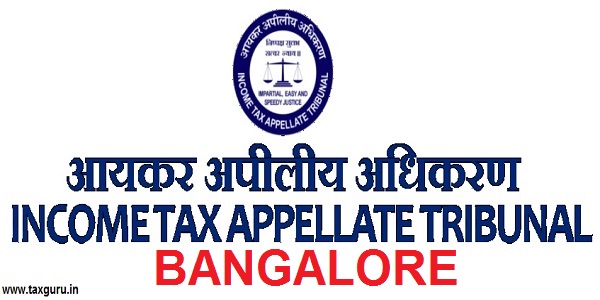Introduction:
Moonlighting is the practise of working a second shift or a second job after finishing one’s regular job. The gig economy’s growth and the demand for additional money have led to an increase in the prevalence of this phenomena in India. Moonlighting, however, may have detrimental legal repercussions for both employers and employees, as well as for society at large. With regard to labour laws and corporate regulations, this article analyses the moonlighting problem in India. It also compares India’s legal system to those in other nations.
Page Contents
Legal Framework In India:
Moonlighting is largely covered under the Industrial Employment (Standing Orders) Act of 1946 and the Factories Act of 1948 in India’s legal system. These laws mandate that companies create and uphold standing rules and control employee work schedules. Additionally, the statutes provide that workers must have a weekly 24-hour rest break and cannot work more than 48 hours a week, including overtime.
Moonlighting is also typically prohibited by terms in work contracts since it can lead to conflicts of interest and impair an employee’s performance of their principal tasks. Additionally, these provisions frequently demand that employees declare any extra employment they may hold.
Although it can be difficult to enforce these prohibitions, many employees prefer to moonlight in defiance of their employment agreements. This can negatively affect employee morale and productivity and result in legal issues between companies and employees.
How Are Other Countries Dealing With It?
Laws and rules governing moonlighting varies greatly from country to country. For instance, in the United States, moonlighting is not illegal on a federal level, and many states have lax legislation forbidding it. Contrarily, moonlighting is outright forbidden in Germany, where employers have the right to terminate an employee’s employment if they are discovered to be moonlighting.
Moonlighting is permitted in certain nations, including the United Kingdom, although individuals are still required to inform their principal employer of any secondary job. If you don’t do it, you risk being disciplined or fired. Similar to the United States, moonlighting in Australia is typically acceptable as long as it does not conflict with the employee’s principal job.
When comparing India’s legal system to those of other nations, it is clear that India has rather tight regulations governing moonlighting. Moonlighting is still a common practise in the nation, while enforcement of these laws can be difficult.
What are its implications on the corporate regime?
Moonlighting may have a big impact on businesses, especially in terms of conflicts of interest and worker output. Employees that have second jobs could have conflicting allegiances and interests, which could cause problems with their primary company. Furthermore, moonlighting can result in fatigue and decreased productivity, especially if a worker is putting in long hours.
Moonlighting is a problem that businesses may address by putting in place explicit rules and processes that forbid or restrict the practise. Conflicts of interest that can result from an employee’s side job should also be covered by these policies.
The underlying causes of employees moonlighting, such as poor compensation, a lack of job stability, or inadequate benefits, can also be examined by organisations. Companies may raise employee morale and lessen the need for workers to take on more work by addressing these fundamental problems.
What Are It’s Legal Implications For Employees:
Employees who moonlight may be subject to legal repercussions, particularly if their side jobs present conflicts of interest or impair their performance in their regular jobs. For instance, a worker for a bank by day and a stockbroker by night may be involved in insider trading or other unethical behaviour.
In addition, employees’ principal employers may take legal action against them if they break their contracts and moonlight. If the employee’s side jobs cause the business to lose money, the employer may take disciplinary action, fire them, or even file legal claims.
Implications for Society:
In terms of exploitation of workers and wage inequality, moonlighting can have wider societal repercussions. Employees who are required to work more hours because they get insufficient compensation or benefits may be more vulnerable to labour exploitation, especially in the unorganised sector. Moonlighting may also result in an unbalanced work-life schedule, which can be detrimental to one’s wellbeing and mental health.
Policymakers may think about taking action to reduce income inequality and enhance working conditions, particularly for low-wage employees, in order to solve these problems. This may entail actions like raising the minimum wage, providing Social Security benefits, and tightening labour rules and regulations.
Conclusion:
In conclusion, moonlighting is a complicated topic with important cultural, business, and legal ramifications. The Industrial Employment (Standing Orders) Act of 1946 and the Factories Act of 1948, as well as the written agreements between employers and employees, govern this practise in India. Moonlighting is still a common practise in the nation, while enforcement of these laws can be difficult.
According to a comparative review, rules and regulations regarding moonlighting varied greatly between nations, with some outright banning the practise and others allowing it under specific conditions.
Moonlighting may be addressed by businesses by putting in place explicit rules and procedures that forbid or control the practise as well as by addressing underlying problems like insufficient salary and benefits.
To lessen the need for employees to moonlight and to lessen the practice’s negative effects on society as a whole, policymakers might also think about putting policies into place that address income disparity and enhance working conditions.
In the end, combating the problem of moonlighting necessitates a holistic strategy that takes into account the sociological, business, and legal ramifications of the practise and aims to build a more just and sustainable labour market.




























